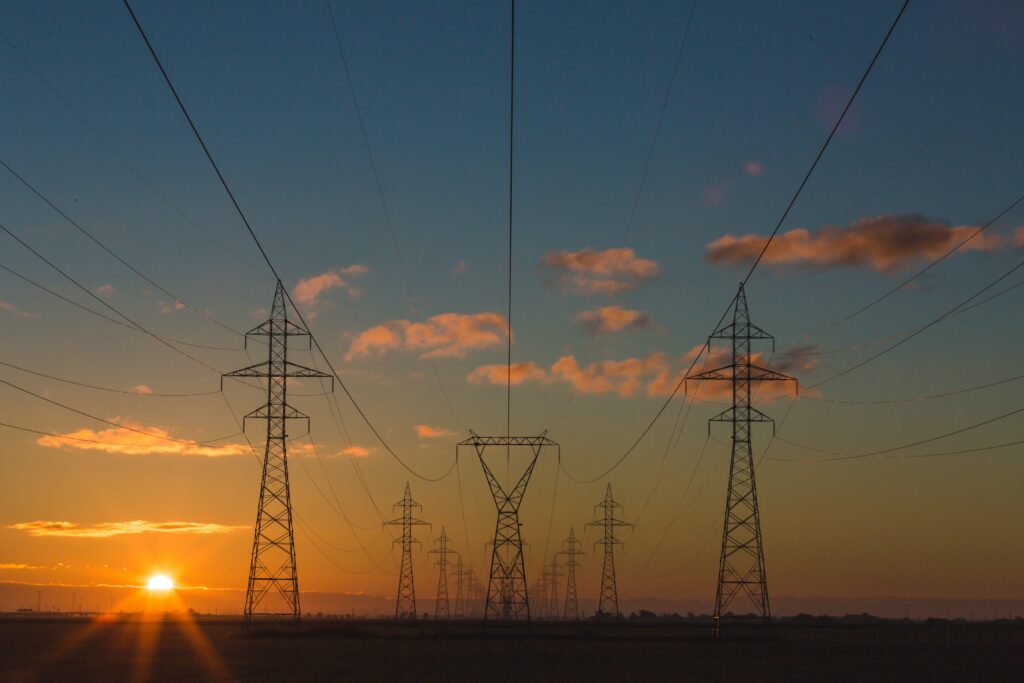Why Is Conserving Energy Important For The Future: Introduction
In today’s fast-paced and ever-evolving world, the importance of conserving energy is undeniable. But why is conserving energy important for the future? As we strive towards a sustainable future, it becomes imperative for each and every one of us to understand the significance of energy conservation. By conserving energy, we not only reduce our carbon footprint but also pave the way for a brighter tomorrow. From protecting our environment to saving money on utility bills, the benefits are undeniable. So, let’s explore why conserving energy is so crucial for our future.

Check Out Our Top Eco Friendly Product Picks On Amazon Here
Why Is Conserving Energy Important For The Future: Reducing Environmental Impact
Decreasing Greenhouse Gas Emissions
Reducing greenhouse gas emissions is crucial in order to combat climate change and its devastating effects. Greenhouse gases, such as carbon dioxide and methane, trap heat in the atmosphere and contribute to the warming of our planet. By decreasing these emissions, we can reduce the amount of heat trapped in the atmosphere and slow down the rate of global warming. This can help mitigate the impacts of climate change, such as rising sea levels, extreme weather events, and disruptions in ecosystems.
Preserving Natural Resources
Conserving energy plays a significant role in preserving our natural resources. Many energy sources, such as fossil fuels, are finite and non-renewable. By reducing our energy consumption, we can decrease the demand for these resources and extend their availability for future generations. Additionally, energy extraction and production can have detrimental effects on the environment, such as habitat destruction and water pollution. By conserving energy, we can minimize these negative impacts and protect our natural ecosystems.
Minimizing Air and Water Pollution
Energy production and consumption are major contributors to air and water pollution. Fossil fuels, when burned for energy, release harmful pollutants into the air, leading to poor air quality and respiratory problems. Similarly, improper disposal of waste from energy production can contaminate water bodies, endangering aquatic life and threatening water sources for human consumption. By conserving energy, we can reduce the need for energy production and subsequently minimize the pollution associated with it, leading to cleaner air and water for all.
Why Is Conserving Energy Important For The Future: Mitigating Climate Change
Limiting Global Warming
Conserving energy is vital in limiting global warming and its profound consequences. The Earth’s temperature is steadily increasing due to the accumulation of greenhouse gases in the atmosphere. By practicing energy conservation, we can reduce the demand for energy production, which usually involves the burning of fossil fuels. This reduction in energy consumption translates into a decrease in greenhouse gas emissions, thus helping to limit the extent of global warming and its associated impacts.
Preventing Extreme Weather Events
Climate change is closely linked to the occurrence of extreme weather events, such as hurricanes, droughts, and heatwaves. These events can have devastating effects on communities, infrastructure, and ecosystems. Conserving energy is an important step in preventing such events. By reducing greenhouse gas emissions through energy conservation, we can minimize the warming of the planet and subsequently decrease the likelihood of extreme weather events. This, in turn, helps protect vulnerable communities and build resilience in the face of climate change.
Why Is Conserving Energy Important For The Future: Promoting Sustainability
Ensuring Future Energy Availability
Energy conservation is essential for ensuring future energy availability. As the world population grows and energy demands increase, the strain on our energy resources is becoming more significant. By conserving energy and adopting sustainable practices, we can ensure that future generations will have access to the energy they need. This includes investing in renewable energy sources such as solar and wind, as well as implementing energy-efficient technologies in various sectors.
Preserving Ecosystems and Biodiversity
Conserving energy goes hand in hand with preserving ecosystems and biodiversity. Traditional energy sources, such as coal and oil, often require disruptive extraction methods that harm natural habitats and threaten the survival of numerous plant and animal species. By reducing our energy consumption and transitioning to renewable energy sources, we can minimize the destruction of ecosystems and protect biodiversity. Preserving these ecosystems is not only crucial for the health of our planet but also for our own well-being as we rely on these ecosystems for various resources and services.
Why Is Conserving Energy Important For The Future: Improving Public Health
Reducing Health Risks
Conserving energy has tangible benefits for public health. The burning of fossil fuels for energy generation releases harmful pollutants, such as particulate matter, sulfur dioxide, and nitrogen oxides, which can have severe health impacts. These pollutants contribute to respiratory diseases, cardiovascular problems, and even premature death. By conserving energy and reducing our reliance on fossil fuels, we can significantly decrease the exposure to these pollutants, leading to improved public health outcomes and a higher quality of life for individuals and communities.
Enhancing Indoor Air Quality
Energy conservation efforts can also enhance indoor air quality, which directly affects our well-being. The use of fossil fuels for residential heating, cooking, and electricity generation can release indoor air pollutants, including carbon monoxide and volatile organic compounds, which can cause respiratory issues and other health problems. By conserving energy and promoting energy-efficient practices, we can reduce the usage of these sources and improve indoor air quality, creating safer and healthier living environments for individuals and families.

Why Is Conserving Energy Important For The Future: Enhancing Energy Security
Reducing Dependence on Fossil Fuels
Energy conservation is a crucial step in reducing our dependence on fossil fuels, which are vulnerable to price fluctuations and geopolitical tensions. By conserving energy and actively seeking alternative, renewable sources of energy, we can decrease our reliance on fossil fuels, such as oil and natural gas, that often come from politically unstable regions. This increased energy security not only provides stability and resilience for our energy supply but also reduces the environmental risks associated with the extraction and transportation of fossil fuels.
Diversifying Energy Sources
Conserving energy and promoting sustainability also involves diversifying our energy sources. Relying on a single source of energy, such as coal or oil, can limit our energy options and make us more susceptible to disruptions. By conserving energy and embracing renewable energy technologies, such as solar, wind, and geothermal, we can diversify our energy portfolio and create a more resilient and sustainable energy system. This diversification allows for greater flexibility, increased energy independence, and a reduced overall impact on the environment.
Why Is Conserving Energy Important For The Future: Driving Technological Innovation
Advancing Energy Efficiency Technologies
Conserving energy is a driving force behind the advancement of energy efficiency technologies. By recognizing the need to reduce energy consumption and maximize energy output, scientists and engineers are constantly working to develop innovative technologies that can achieve these goals. From energy-efficient appliances and smart home systems to industrial process improvements, these advancements in energy-efficiency technologies not only reduce our environmental impact but also lead to cost savings, increased productivity, and improved overall energy usage.
Encouraging Renewable Energy Development
Energy conservation plays a vital role in encouraging the development and adoption of renewable energy sources. By actively reducing our energy consumption, we create a greater demand for clean and sustainable energy alternatives. This demand, in turn, drives the investment and innovation needed to expand renewable energy technologies, such as solar panels and wind turbines. By conserving energy and promoting renewable energy development, we can accelerate the transition towards a more sustainable and carbon-neutral energy future.

Why Is Conserving Energy Important For The Future: Boosting Economic Growth
Creating Jobs
Energy conservation initiatives have the potential to create new job opportunities and boost economic growth. Transitioning to a more sustainable and energy-efficient economy requires a skilled workforce to design, install, and maintain energy-efficient technologies and renewable energy systems. By investing in these sectors, we can generate employment opportunities across various industries, from construction and manufacturing to research and development. This job creation not only stimulates economic growth but also promotes a cleaner and more sustainable future for all.
Lowering Energy Costs
Conserving energy can greatly lower energy costs, benefiting both individuals and businesses. By adopting energy-efficient measures, such as insulation, LED lighting, and smart thermostats, we can reduce our energy consumption and, consequently, our energy bills. This reduction in energy costs frees up financial resources that can be allocated to other important areas, such as education, healthcare, and innovation. Furthermore, lower energy costs for businesses can enhance their competitiveness, stimulate economic activity, and attract investments, contributing to overall economic growth.
Why Is Conserving Energy Important For The Future: Empowering Individuals and Communities
Increasing Energy Independence
Energy conservation empowers individuals and communities by increasing their energy independence. By adopting energy-efficient measures and renewable energy systems, households and communities can reduce their reliance on external sources of energy. This increased energy independence provides greater control over energy costs, increases resilience in the face of energy disruptions, and reduces vulnerability to fluctuating energy prices. Additionally, local renewable energy projects can create opportunities for community engagement, empowerment, and self-sufficiency.
Fostering Social and Economic Equality
Conserving energy can contribute to fostering social and economic equality within society. Energy costs can be a significant burden on low-income households, leading to energy poverty and social inequity. By promoting energy conservation and energy efficiency measures, we can help alleviate this burden and reduce energy inequality. Making energy-saving technologies and practices more accessible and affordable for all can ensure that everyone has an equal opportunity to benefit from energy conservation, leading to a more just and sustainable future.

Why Is Conserving Energy Important For The Future: Supporting Energy Conservation Policies
Encouraging Legislation
Energy conservation relies heavily on the development and enforcement of supportive legislation. Governments worldwide play a pivotal role in advancing energy conservation by creating and implementing policies that prioritize energy efficiency across various sectors.
Examples:
- Energy Efficiency Standards: Governments can establish and enforce energy efficiency standards for a wide range of products, from household appliances to industrial machinery. For instance, the United States has implemented the ENERGY STAR program, which labels and certifies energy-efficient products, incentivizing consumers to choose eco-friendly options.
- Building Codes: Strict building codes that require energy-efficient designs and materials can significantly reduce energy consumption in the construction and operation of buildings. An example is California’s Title 24 Building Energy Efficiency Standards, which set stringent requirements for new construction and renovations to enhance energy efficiency.
- Vehicle Emissions Standards: Governments can set emissions limits and fuel efficiency standards for vehicles, pushing automakers to develop more fuel-efficient and eco-friendly cars. The Corporate Average Fuel Economy (CAFE) standards in the United States serve as an illustration of such regulations.
- Renewable Energy Mandates: Some regions mandate a certain percentage of energy generation to come from renewable sources. For instance, several U.S. states have established Renewable Portfolio Standards (RPS) that require a specific portion of electricity to be generated from renewables like wind and solar.
Implementing Incentives
Incentives are powerful tools for encouraging energy conservation efforts on both individual and organizational levels. These incentives can come in various forms, ranging from financial rewards to public recognition.
Examples:
- Tax Credits: Many governments offer tax credits to individuals and businesses that invest in energy-efficient upgrades or renewable energy systems. For example, the Federal Investment Tax Credit (ITC) in the United States offers financial incentives for residential and commercial solar panel installations.
- Rebates: Utilities and governments may provide rebates for the purchase of energy-efficient appliances, lighting, and HVAC systems. This reduces the upfront cost of adopting energy-saving technologies.
- Public Recognition Programs: Certifications and recognition programs, such as LEED (Leadership in Energy and Environmental Design) for buildings or ENERGY STAR for appliances, motivate individuals and organizations to strive for energy efficiency while showcasing their commitment to sustainability.
- Grants and Subsidies: Governments and organizations can provide grants and subsidies to fund energy conservation projects, especially in underserved communities or for innovative technologies with high potential for energy savings.
By actively supporting and promoting such policies and incentives, societies can cultivate a culture of energy conservation, inspiring a collective effort toward a more sustainable and energy-efficient future.
Why Is Conserving Energy Important For The Future: Educating and Raising Awareness
Promoting Energy Consciousness
Education and awareness play a critical role in promoting energy conservation. By providing information and resources on energy-saving practices, individuals can make informed decisions about their energy consumption. Public awareness campaigns can highlight the benefits of energy conservation, the impacts of energy waste, and the importance of sustainable energy practices. With increased energy consciousness, individuals can take proactive steps to reduce their energy consumption and make more sustainable choices in their daily lives.
Changing Consumer Behavior
Energy conservation efforts are most effective when accompanied by changes in consumer behavior. By encouraging and empowering individuals to make energy-conscious choices, we can create a collective impact on energy conservation. This can include actions such as using energy-efficient appliances, adjusting thermostat settings, using alternative transportation methods, and supporting renewable energy initiatives. Small changes in consumer behavior, when multiplied across populations, can significantly reduce energy consumption and contribute to a more sustainable future for all.
Promoting energy conservation is crucial for the future of our planet and the well-being of current and future generations. By reducing greenhouse gas emissions, preserving natural resources, minimizing pollution, mitigating climate change, improving public health, enhancing energy security, driving technological innovation, boosting economic growth, empowering individuals and communities, supporting energy conservation policies, and educating and raising awareness, we can collectively create a more sustainable and resilient future. It is our responsibility to take action and make energy conservation a priority in our lives.
Why is Conserving Energy Important for the Future: In A Nutshell
In summary, “Why Is Conserving Energy Important For The Future” is a question that merits careful consideration in our rapidly evolving world. As we delve into the complexities of our energy needs, it becomes evident that energy conservation is not merely a choice but a necessity for various compelling reasons.
First and foremost, energy conservation is vital for addressing the impending global energy crisis. With the growing global population and an increasing dependence on technology, the demand for energy continues to surge. By practicing energy conservation, we can alleviate the strain on finite resources such as fossil fuels and reduce greenhouse gas emissions, mitigating the threat of climate change and ensuring a sustainable energy supply for future generations.
Moreover, energy conservation contributes significantly to economic stability and resilience. Reduced energy consumption translates into lower energy bills for individuals, businesses, and governments. These cost savings can be redirected toward investments in renewable energy sources, energy-efficient technologies, and other areas of critical importance. In turn, this stimulates job creation and fosters economic growth, making energy conservation a pivotal factor in building a more prosperous future.
Furthermore, the benefits of energy conservation extend to the realm of environmental preservation. By curbing energy waste, we decrease the need for environmentally damaging practices such as mining and drilling. This, in turn, safeguards ecosystems, conserves biodiversity, and protects precious natural resources. It also reduces pollution and its adverse effects on air and water quality, fostering healthier environments for both humans and wildlife.
On a personal level, energy conservation empowers individuals to take control of their energy consumption and reduce their carbon footprint. Simple actions, such as using energy-efficient appliances, insulating homes, and adopting sustainable transportation methods, can collectively have a profound impact on reducing overall energy demand. Additionally, conservation practices often lead to healthier lifestyles, such as increased physical activity through walking or biking, resulting in personal health benefits.
In the context of national and international policy, energy conservation is a cornerstone of achieving climate goals and sustainability targets. Countries worldwide are adopting ambitious renewable energy and emission reduction targets, and energy conservation plays a pivotal role in meeting these objectives. It fosters innovation, encourages technological advancement, and promotes international collaboration to address shared energy challenges.
In conclusion, “Why Is Conserving Energy Important For The Future” is a question that carries immense significance. Energy conservation is not merely a choice; it is an imperative for ensuring a sustainable, prosperous, and environmentally responsible future. By embracing energy-saving practices in our daily lives, supporting renewable energy solutions, and advocating for responsible energy policies, we can collectively contribute to a world where energy is used wisely and the promise of a brighter future is fulfilled for generations to come.




